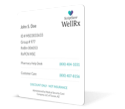5 Signs of Heart Problems Worth Worrying About
By Libby Pellegrini MMS, PA-C
February 18, 2020

It’s hard to miss the classic presentation of a heart attack—hands clutching the chest in agony, sweating, rapid breathing. Whether in movies, drug commercials, or television shows, popular media have likely drilled the warning signs into your head. Even more nuanced signs of a heart problem, such as neck, arm, or jaw pain, tend to get our attention in a hurry. However, some heart problems make themselves known with signs that are far more subtle.
Don’t be caught off guard when it comes to protecting your own and your loved ones’ hearts. Read on to learn five signs of a heart problem that are worth worrying about.
1. Passing Out with No Warning
Fainting can occur for many reasons, including exhaustion, emotional distress, illness, dehydration, rising quickly from a seated position, or a brain condition. Usually, such episodes of fainting, also known as syncope, come with warning signs such as lightheadedness, dizziness, weak legs, or tunnel vision. However, fainting without any preceding clues could be caused by an electrical heart problem.
Typically, electricity drives the normal functioning of the heart. However, when the heart’s chambers receive certain abnormal electrical signals, the chambers can start pumping out of sync, creating a condition called complete heart block. The heart rate slows and blood pressure drops, causing your heart to temporarily stop sending blood to your brain. This can cause you to faint.
The causes of heart block include structural abnormalities in the heart, inflammation, infection, heart attack, surgical procedures, certain genetic abnormalities, or certain medications. If you or a loved one is experiencing episodic fainting, follow up with a healthcare provider immediately.
2. Getting Winded During Normal Activities
If you notice a sudden change in your ability to perform your normal daily activities, such as grocery shopping or walking up a flight of stairs, it could be caused by a problem with your heart.
As a muscle, the heart contracts in a coordinated effort to pump blood throughout the body, pushing blood from chamber to chamber and then out to the body. If one of the valves between the chambers becomes too narrow (due to infection, cumulative damage, or a structural problem), the heart has to work harder to pump blood. This increased pumping effort can cause you to feel more tired than usual during your normal activities.
One specific valve that can become too narrow is the aortic valve. This valve, which sits on the left side of the heart, is the doorway between the heart and the rest of the blood network. If your healthcare provider suspects you have this heart condition, known as aortic stenosis, he or she will listen to your heart with a stethoscope to check for a murmur and likely order an ultrasound of the heart to better evaluate what is going on.
3. Fast Weight Gain Without Explanation
Some types of weight gain can be easily explained by a few too many holiday parties, an ice cream marathon, or a bum knee that derails a workout routine. However, rapid weight gain without explanation could be a sign of a heart problem called heart failure.
When the heart is pumping (which is all the time, hopefully!), it relies on a series of mechanisms to keep blood flowing throughout the body. Typically, this is a beautifully orchestrated feedback loop: the heart beats, pushing blood to the kidneys and other organs; the kidneys filter out waste and excess fluid, creating urine; and the blood then is returned to the heart. However, if the heart weakens, it can’t keep up with the cycle, triggering a backup in the plumbing system. Fluid will start to accumulate in the body, outside of the blood vessel network, in places such as the legs, abdomen, or lungs. Retaining excess fluid in this manner can cause sudden weight gain.
Heart failure can come on gradually or suddenly. There are many causes or risk factors, including coronary artery disease, cigarette smoking, obesity, diabetes, high blood pressure, aging, infection, pregnancy, illicit drug use, and heart valve problems. Follow up with your healthcare provider for urgent evaluation if you are experiencing rapid weight gain that has no clear explanation.
4. Shortness of Breath When Lying in Bed
Shortness of breath that increases when you are lying flat can also be a sign of heart failure. When fluid backs up into the lungs, it can cause orthopnea, or feeling airless (short of breath) when lying down. Many people with heart failure will compensate by increasing the number of pillows they use to sleep so they are in a more upright position.
If you or a loved one are experiencing this sign, follow up with your healthcare provider immediately for a thorough medical evaluation. Many people with heart failure are able to control their condition using medication. If you are prescribed a medicine, visit ScriptSave® WellRx to find the lowest prescription price.
5. Dizziness
Dizziness is a cardinal sign of many heart conditions, particularly problems with the heart’s rhythm. One common heart rhythm problem is atrial fibrillation, or “a-fib.” When the heart switches into a-fib, it beats rapidly in an irregularly erratic pattern, which results in inconsistent delivery of blood to the brain. This sporadic brain perfusion from the variability in blood delivery to the brain can cause the symptom of dizziness.
Atrial fibrillation can be caused by coronary artery disease, high blood pressure, age, infection, or hormonal problems. If you or a loved one is feeling dizzy, especially if you also have a noticeably rapid heartbeat, seek medical attention immediately.
Putting It All Together
Some signs of a heart problem are subtle. If you are experiencing any of the five signs above, follow up with a medical provider immediately. If, after a thorough evaluation, you are diagnosed with a heart condition, you will likely be prescribed a medication. Make sure to check out ScriptSave WellRx at a pharmacy near you to receive the lowest prescription price.
References:
Cleveland Clinic, Heart Block
Cardio Smart, American College of Cardiology, Aortic Stenosis
Mayo Clinic, Heart Failure
Harvard Health, Atrial Fibrillation
Libby Pellegrini is a nationally certified physician assistant. She currently works in emergency medicine, where she sees and treats a broad spectrum of illnesses across all age ranges. She holds a journalism degree from Northwestern University.
Recommended Articles









